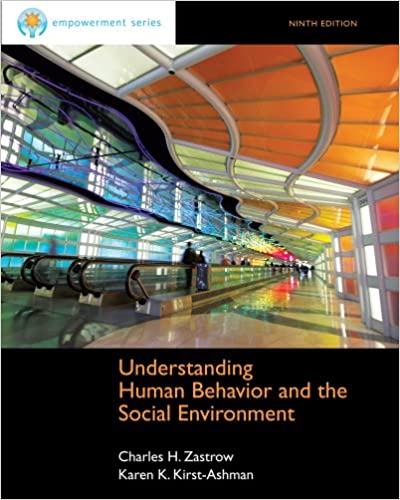
Brooks/Cole Empowerment Series: Understanding Human Behavior and the Social Environment 9th Edition by Charles Zastrow,Karen Kirst Ashman
Edition 9ISBN: 978-1133314400
Brooks/Cole Empowerment Series: Understanding Human Behavior and the Social Environment 9th Edition by Charles Zastrow,Karen Kirst Ashman
Edition 9ISBN: 978-1133314400 Exercise 2
When infants are born with an ambiguous or unclear gender, should they be assigned to one gender or the other? At that time, should they be physically altered to more closely resemble the assigned gender? If so, who should be responsible for making this decision? To what extent might children with ambiguous genitals (even after being given an assigned gender as the ISNA suggests) fit in with their peers and be able to function well socially? Would it be better to wait until children reach adulthood to determine gender and/or to do any relevant surgery? Why or why not? Should society become more open-minded and expand its views of sex and gender to include more variations of male and female (a proposal that the ISNA does not support)?
Explanation
When infants are born with an ambiguous ...
Brooks/Cole Empowerment Series: Understanding Human Behavior and the Social Environment 9th Edition by Charles Zastrow,Karen Kirst Ashman
Why don’t you like this exercise?
Other Minimum 8 character and maximum 255 character
Character 255


